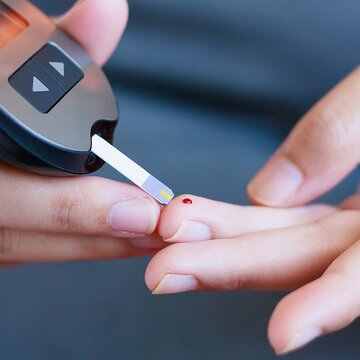Seeing foam or bubbles in the toilet after urinating may seem harmless, but sometimes it can hint at an underlying health issue. While occasional foam might be normal, persistent foamy urine can be a sign that something is affecting your kidneys or urinary system.
Harmless causes of foamy urine
According to a report by Verywell Health, foamy urine doesn’t always signal disease. In many cases, it can happen due to simple, everyday reasons:
Dehydration: If the body doesn't have enough water, the urine becomes more concentrated and may be darker with a bubbly surface.
Rapid urine flow: A forceful, fast stream of urine onto the toilet water can leave passing bubbles momentarily.
Also Read | Centre to regulate gene and cell therapies under drug law
Cleaning agents: Toilet cleaners or detergents with surfactants such as sodium laureth sulfate can react with the urine, producing noticeable foam.
Stress and exercise: Intense exercise, heat, or high fever can change kidney function temporarily, resulting in benign protein traces in urine.
Proteinuria: A common medical cause
As per the report by Verywell Health, if frequent foaming or prolonged duration occurs, it could be indicative of proteinuria, where the kidneys excrete excess protein into the urine. Under normal circumstances, healthy kidneys remove waste but retain vital proteins in the bloodstream. If the filtering cells (glomeruli) become damaged, protein spills into the urine and forms foam.
Possible causes are:
Diabetic nephropathy: Kidney scarring due to prolonged high blood sugar
Chronic kidney disease (CKD): Irreversible loss of kidney function over time
Autoimmune diseases: Like lupus or IgA nephropathy
Preeclampsia: Pregnancy complication associated with high blood pressure
Kidney cancer or polycystic kidney disease: Conditions that damage kidney tissues or form cysts, impairing filtration and leading to protein leakage into urine.
Overflow conditions, where an excess amount of protein is made in the blood, may also cause proteinuria, such as multiple myeloma or amyloidosis.
Also Read | Just avoiding sweets won't do, these 5 foods also increase sugar levels
When to see a doctor?
According to the report by Verywell Health, a medical evaluation is recommended if foamy urine is persistent, particularly if accompanied by:
Swollen hands, feet, or face
Frequent urination or the need to urinate urgently
Shortness of breath or tiredness
Uncontrolled diabetes or high blood pressure
Physicians typically start with a urine dipstick test to find protein. Other tests, such as a 24-hour urine test, albumin-to-creatinine ratio, or kidney ultrasound, assist in identifying the reason.
Also Read: Do you take your phone to the toilet? Here’s how it harms your health
Treatment and prevention
Treatment varies according to the cause. Mild dehydration requires increased fluid consumption only. In proteinuria, blood pressure and blood glucose control are essential. Use of drugs like ACE inhibitors, ARBs, or diuretics is routine to preserve kidney function, the report says. A balanced low-sodium diet, exercise, and abstention from smoking or alcohol further promote kidney health.











